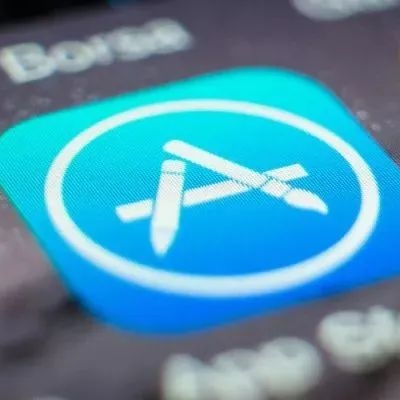
Nowadays, almost everyone will download apps for various purposes from the mobile app store to facilitate life. If the app developer is involved in infringement, does the network service provider represented by the app store operator need to bear the corresponding legal liability? Recently, lawyer MaZengwei of Jiawei law firm accepted an interview with China Intellectual Property News and made a detailed interpretation of this event.
Recently, the Beijing Intellectual Property Court made a second instance judgment on the case of Tibet yueduji culture media Co., Ltd. (hereinafter referred to as yueduji company) suing Apple company for infringing the right of information network communication of works, and held that yueduji company enjoyed the right of information network communication of the book "I just forgot you" (hereinafter referred to as the works involved), In the Apple App store operated by apple, the app (hereinafter referred to as the app involved in the case) named "selected romantic novels, free e-books and urban fantasy book city" spread the works involved without authorization, which infringed the legitimate rights and interests of Yuedu Ji company. Apple took a knowable but laissez faire attitude towards this behavior, subjectively made mistakes, and constituted help infringement, Therefore, Apple was ordered to compensate the economic losses of yueduji company by 21800 yuan.

(picture from the network)
As the case involves well-known enterprises and is typical, it has been widely concerned since the acceptance stage. After the first instance decision, apple refused to accept the decision and appealed to the Beijing Intellectual Property Court. After trial, the Beijing Intellectual Property Court upheld the judgment of the first instance.
During the trial, the court of second instance of the case clarified whether the network service provider represented by the application store operator is qualified as the defendant, and whether the network service provider should bear legal liability in case of infringement by a third-party application developer. Then, in such cases, does the network service provider constitute help infringement? If it constitutes infringement, what corresponding legal liabilities should it bear?
In this regard, some experts said that whether network service providers should bear joint tort liability with app operators.
Lawyer MaZengwei
In the case of dispute over the right of information network communication, it is necessary to judge whether the alleged infringement belongs to the act of directly providing content or the act of providing network services. If the content is directly provided, it may constitute direct infringement; If only network services are provided, it may constitute indirect infringement. Whether the network service provider constitutes indirect infringement needs to be judged according to its fault. The fault judgment of the network service provider should be consistent with its ability to manage information, possible reasonable measures to prevent infringement and its predictability of infringement.
In this case, the Appstore operator should belong to the network service provider. According to the Appstore development agreement, the Appstore will conduct a comprehensive review of the developer's app before it is put on the shelves. The Appstore operator has strong control and management ability, and can become an app developer on the Appstore platform only after paying relevant fees. Therefore, the Appstore has a high duty of care. Although the app involved in the case has not embedded the content of the works involved, the name of the app involved in the case is "selected romantic novels, free reading of e-books with urban fantasy book city". Generally speaking, the online free reading of books involved is highly likely to infringe. Although the Appstore operator cannot actively review all the content, for the free book reading app with high infringement probability, according to the review mechanism before the app goes online, At the review stage, such free book reading apps should be filtered through technical means and the review standards should be improved, or app developers should be required to further provide ownership or authorization documents to avoid infringement. However, in this case, the Appstore operator did not take any similar measures. The courts of first and second instance found that it did not fulfill the corresponding duty of care, which constituted an act of helping tort, and it was reasonable that it should bear joint and several liability for compensation.
So, how can relevant practitioners avoid such risks? Some experts believe that if such apps are repeatedly complained of infringement, network service providers should improve their duty of care for the app and take necessary measures such as shielding and off the shelf to prevent repeated infringement and large-scale infringement.
Lawyer MaZengwei
Generally speaking, the network service provider can claim the "safe harbor" principle to exempt the tort liability. However, for the obviously foreseeable and well-known infringement, if the network service provider fails to fulfill the corresponding duty of care, the "safe harbor" principle cannot be applied at this time, which may still constitute a helping infringement. "The network service provider shall, if its current technical conditions permit, take corresponding necessary measures to prevent infringement for acts with high infringement risk or high predictability, so as to avoid similar risks. For app developers, they shall obtain the license or authorization of the copyright owner or neighboring right owner in advance when developing the app, so as to avoid infringement." Mazengwei reminded relevant practitioners.
It is hoped that in the future development of the app store, operators should gradually establish an effective mechanism conducive to the long-term and stable development of the app store. From the perspective of intellectual property, it is better to improve the intellectual property audit mechanism within the scope of ability, so as to build a development platform that can effectively protect innovation.
Source: China Intellectual Property News
© Beijing JAVY Law Firm Beijing ICP Registration No. 18018264-1